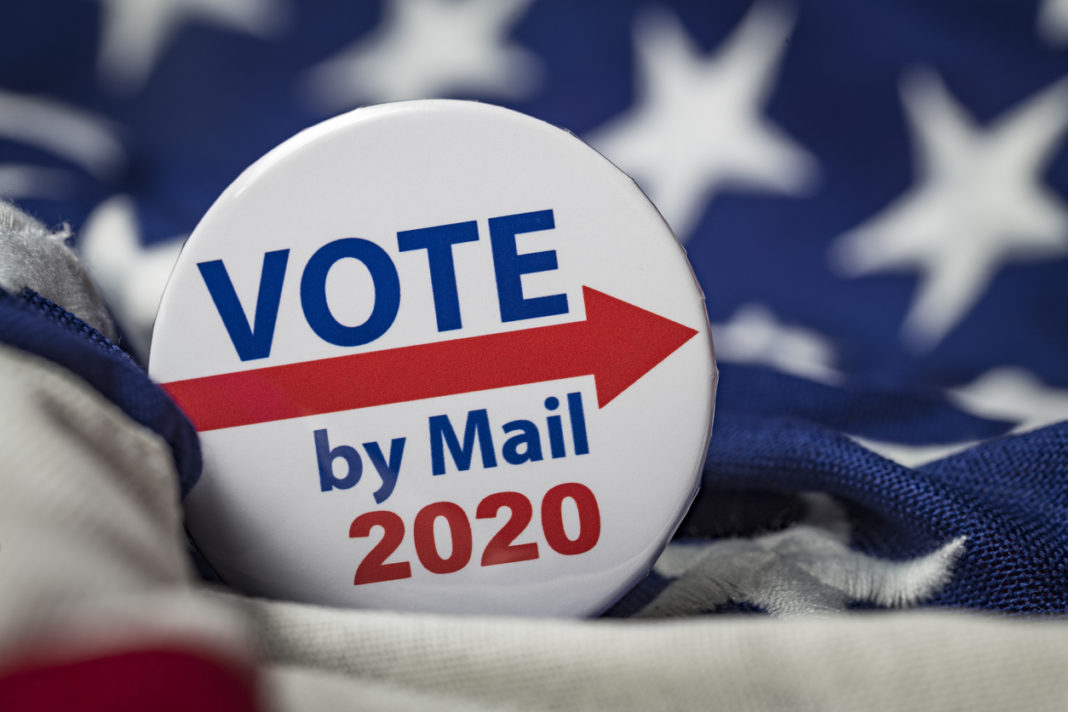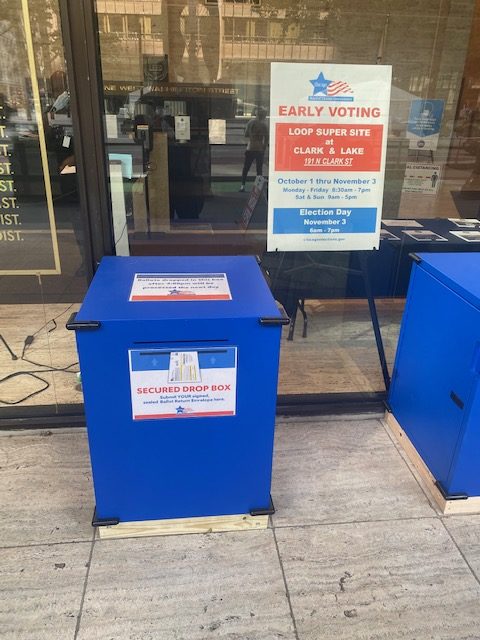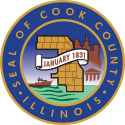How is voting by mail going to work? Is it safe to vote in-person or should I vote by mail? All of your questions are answered in this video blog with Computer Forensic Expert Lee Neubecker and Cook County Clerk Karen Yarbrough. They will help put your mind at ease!
Lee Neubecker (LN): Hi, I’m here again with Karen Yarbrough, the clerk of Cook County and she’s responsible for administering elections and making sure that your vote counts. Karen, thank you for being on the show again.
Clerk Yarbrough (CY): Again, Lee. Thank you.
LN: So, today we’re going to talk more specifically about voting by mail.
CY: Okay.
LN: What do you have to do to vote by mail?
CY: Well, the first thing you have to do is be a registered voter. What a concept, right? Be a registered voter and then have a place where you want your ballot to be mailed to.
LN: Okay. So if you want to get that ballot, how can you get a vote by mail ballot?
CY: You apply at the best website in the world cookcountyclerk.com and you apply there. You will be sent a ballot and hopefully you will review your choices, make your choices, you’ll sign the envelope, it’ll be a postage paid envelope for you and mail it in. Or you have the option of if you don’t want to mail it in, we’re going to have over 60 boxes in which… They will be inside of the early voting places. And you’ll be able to drop those in the box. Now, I want to tell you that they’re inside because some people have suggested that, “Oh, if they’re out in the middle of Michigan Avenue, somebody could just cart it off.” We’ll not be in the middle of Michigan Avenue. They will be inside the polling places and they will be attended to by one of our election judges.
LN: Great. So you can either drop it off at the polling place or you can drop it in the mail?
CY: Yes.
LN: And, what is the deadline on when you can last request a ballot to vote by mail?
CY: Whatever that deadline is, don’t use that deadline to do it today, okay? Today is the day that you should request your ballot. We’ve heard some stories about the post office, although we feel like they’ve been doing a pretty good job and regardless of the noise you’re hearing from Washington, turn it off, fill out your ballot, send it in or drop it off at our locations.
LN: And So as long as it gets postmark stamped by November 4th, it counts, correct?
CY: November 3rd. Yes.
LN: Okay, November 3rd.
CY: Yes, yes.
LN: So as long as it gets stamped by November 3rd, the ballot counts?
CY: That’s absolutely correct.
LN: So drop it off at the post office if you’re concerned, but people should try to drop it off early so there’s time-
CY: We want people to apply now for their ballot. Get their ballot, review their choices, pop it in the mail or else drop it off at one of the drop boxes at our early voting sites.
LN: So, you could also think of voting by mail as doing your part to help control the spread of COVID-19.
CY: I agree. And we’re suggesting, especially to seniors, seniors are very… They want to be social and that’s what many of them have told me. They like showing up on election day. So I’m suggesting to them to use my website, cookcountyclerk.com order your ballot, review your choices and either mail it in and if you want to be social, drop it off at one of our drop boxes. You’ll be able to wait to our judges that you’re used to seeing on election day, but you’ll be able to not stand in line and pop it in our dropbox.
LN: Good. So, let’s say that someone’s at a situation where they got the ballot, they have it at home, but it’s election day. Is it better for them to drop that vote by mail ballot at a poll box or is it better to go in and vote in person?
CY: They should go ahead and vote in person. Even though that ballot, we know that ballot, they have that ballot and the fact that they lost it or they don’t have it, that’s okay. Come in, vote, but there’ll be voting provisionally. And what we do is that spoiled ballot, as far as we’re concerned, that ballot is spoiled because they’ve already voted. Each and every voter in Cook County has a unique voter code that is you. And anytime it shows up, that’s where you get the one person, one vote. We’re not again, having Mickey Mouse to vote in these elections, okay?
LN: So, you think that there’s any truth to voting by mail leading to a fraudulent outcome of the election?
CY: There’ve been countless studies done on fraudulent voting and elections. And I don’t know why this year this is such a focal point. These studies have suggested that less than one point, whatever percent, it’s just not happening, it’s red herring, it’s not happening. So we’re not going to… Although we’re going to prepare for anything like that, it’s just not true.
LN: All right. And one last thing, can you tell everyone again what the website is they need to go to, to request the vote by mail-
CY: cookcountyclerk.com the best website in the world that you can use to get the real deal. No fake news there.
LN: So you said cookcountyclerk.com?
CY: That’s right, yeah.
LN: Not .gov, but .com?
CY: No, .com. We are your trusted source as it relates to elections in Cook County.
LN: Well, thanks again for being on the show and everyone do your duty and get your ballot, vote by mail, vote early, vote often, as they say in Chicago. So-
CY: We’re only going to be voting one time in Cook County.
LN: Great. Thanks again.
CY: Thanks Lee.
LN: Take care.




